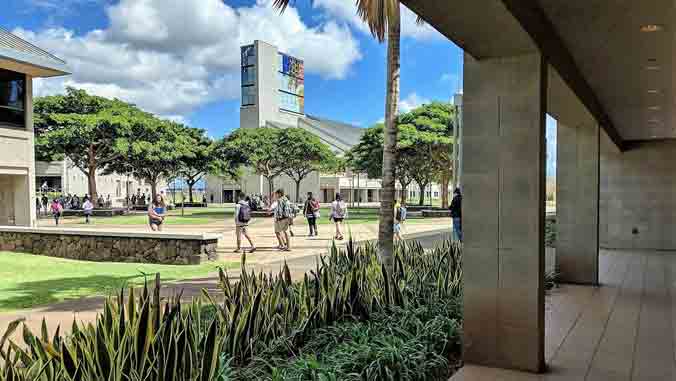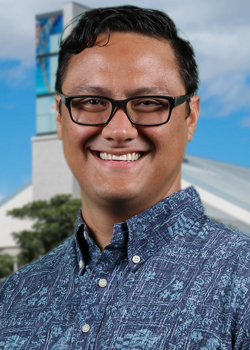
Improving college readiness and success for Native Hawaiian students and providing them with STEM learning opportunities is the focus of a $2.5 million grant from the National Science Foundation (NSF) to the University of Hawaiʻi–West Oʻahu.
The funding supports UH West Oʻahu’s efforts, as an indigenous-serving institution, to expand STEM (science, technology, engineering and mathematics) capabilities. Over the past year, UH West Oʻahu’s efforts to increase STEM activities included new degree offerings, obtaining a $638,100 grant to create a program for veterans in STEM, and the formation of a campus chapter of the Society for Advancement of Chicano/Hispanics and Native Americans in Science.
“We believe that our efforts will have a positive impact on Native Hawaiian student success,” said UH West Oʻahu Chancellor Maenette Benham.
The award will provide UH West Oʻahu with funding to increase the number of students enrolled in STEM programming and remove barriers that students may face in pursuing STEM degrees. Additionally, the award will aid UH West Oʻahu in developing a five-year plan to enhance the STEM degrees, concentrations and certificates to be offered at the school, while supporting the building of a transdisciplinary, sustainable STEM ecosySTEM within the university.


The university’s Pūkoʻa Kani ʻĀina project will employ a pipeline approach in enrolling high school students in summer bridge programs that help prepare students for college and continuing to work with them as they move through college. This will also support the development of innovative STEM courses that will be designed to more fully engage students and foster knowledge and skills required in today’s STEM workforce.
“Pūkoʻa Kani ʻĀina, led by (professors) Kamuela Yong and Megan Ross, will strengthen our STEM programs offered at UH West Oʻahu and establish STEM pathways from our K–12 public schools to university as well as transfer opportunities from our community colleges to a four-year bachelor’s degree,” said Benham.
The grant, announced by U.S. Sen. Mazie K. Hirono, will be funded through the NSF’s Tribal Colleges and Universities Program (TCUP), which works to support native-serving institutions of higher education as they build their STEM instructional and research capacities.
“This NSF grant funding is a step in the right direction in providing our keiki with opportunities to participate in high-quality STEM programs and in removing barriers that frequently discourage students from entering these fields to begin with,” Hirono said. “Through UH West Oʻahu’s innovative programs, our students will receive the support they need to get into and stay in the STEM pipeline, earn their degree, and go on to fill existing STEM jobs or create new innovative businesses in Hawaiʻi.”
Hirono has been an advocate for federal programs that broaden participation for women and minorities in STEM and earlier this year worked with 11 colleagues to request strong funding for NSF’s Broadening Participation Programs, which include TCUP.
—By Greg Wiles

